- Home
- Michael Wallace
Chasm of Fire Page 5
Chasm of Fire Read online
Page 5
Drafting men from the lower terraces should keep Iliana and Thiego occupied for the next few days. They’d got a good start on recruits, already, with target numbers sent out to the Quinta and others.
The levy had begun with Carbón. His foremen at the mines, the breakers, and on the rail line had identified more than three hundred men—some of whom could be replaced by Basdeenians, some not—who would be sent off to the army. Pedro Torre had raised another hundred and twenty, plus roughly ninety who would be retired from the construction work and turned over to de Armas’s barracks at the head of the Quintana Way.
Lord Puerto would provide between two and three hundred more from Dalph, mostly stevedores and other dock workers. There were another hundred or so recruits to call up from the families of the Thousand. Then there were the watchmen, plus the other former soldiers.
That left roughly a thousand men to be raised from the dumbre. Shouldn’t be too hard, with the proper incentives. There must be eight or ten thousand men between the ages of sixteen and forty living down there, and weren’t they always agitating for more work? Three or four hundred recruits a day should do it.
So that gave Carbón a few days to get accustomed to the idea of returning to the Rift. Thiego had told Iliana they needed to visit the artifact in order to understand the strange writing appearing in the depths of the mines. He even claimed to have a guide to bring them down the cliff face and see them safely through the dangers at the bottom. And now it turned out that the young man was the new Guardian of Secrets, so he should have unlimited access to the artifacts in the temple vaults.
Assuming he could be trusted.
Thiego’s raised voice caught Carbón’s attention. “I’m not worried about that,” he told the other two. “I grew up in the dumbre—at one time I knew every alley, catwalk, hanging bridge, and staircase leading to and from the Wood Road.”
“You find the rat nests,” Mota said, “and I’ll flush out the rats. Then our girl here—excuse me, our woman—can make her offer. Either join the army or take a flying jump into the Rift.”
“Let’s hope de Armas knows how to turn rats into men,” Iliana said. “Or it will be a short, unhappy war.”
Carbón looked back into the Rift, and their voices fogged into the background. All he could see from this vantage was a thick forest canopy hundreds of feet below. Because of the angle, there was no way to see the artifact, nor the clearing it had burned free along the side of the river, but he could see a column of steam to the north that was the object’s regular reminder that it was still down there, doing who knew what.
He remembered as a boy, toward the end of his long recovery from the mine explosion, when he’d been taken into the Rift. He’d have been ten years old, or very nearly so, because he remembered that the fresh scar tissue in his abdomen and groin still hurt at the time, though he hadn’t admitted it to the previous Lord Carbón, who would shortly become his adopted father.
The things he’d seen down there still haunted him to this day.
Chapter Five
Alan lost track of time during his long recovery from the mine explosion, but he knew that several months must have passed since he’d awakened in the huge bed, sweating and crying in pain, belly bandaged, because when he’d come onto the terrace after breakfast that morning, he’d discovered a rime of ice along the carved stone railing overlooking the Carbón gardens.
Some days he wondered if he’d died and awakened in another world, maybe what some of the men in the mines called heaven. His bed was a thing of luxury, so soft he never wanted to get up. Meals arrived on a platter, and a gentle old servant woman drew him up hot baths with real soap, then helped him in and out of the basin. The whole thing seemed like a dream. Only the residual pain in his belly and down in his mangled groin reminded him of the truth.
Now, watching the sun melt ice crystals on the railing, he figured it must be late fall. Not winter yet, but summer was long gone, and he remembered the weather had been sweltering when the accident occurred.
He could only vaguely remember the incident itself. There had been a loud noise, then something whistling through the air, and then he didn’t remember anything else until he woke up with the surgeon standing over him, changing his bandages. To the surgeon’s side stood an impossibly tall, noble-looking man that he’d later learned was Lord Carbón himself, the man who owned the mines that nearly took his life.
But Alan did remember that he’d been planning to swipe tomatoes the day of the accident. Someone’s garden lay too close to a fence on the pathway that paralleled the terminus of the cog railway. The workers from the dumbre dismounted rail cars at the end of every grueling shift before crossing the lower wall and descending into the lower terraces on foot. Alan thought if he could scale a stone boulder jutting from the path, he could reach over and pluck the nearest tomatoes without being seen.
Ripe tomatoes, hot weather. So it must have been summer, still. Now, it was not.
He was playing with the melting ice, breaking off pieces and either watching them melt in his palm or sucking on them, when he heard a noise. He turned to see Lord Carbón standing behind him, a thoughtful expression on his face.
Carbón was older than most of the men the boy knew, hair gray, face lined, and yet strong and manly in a way Alan hadn’t seen in others. He simultaneously admired and feared the man.
The boy clenched his belly and winced. “I’m sorry, I shouldn’t have got out of bed.”
“Actually, the surgeon tells me you’ve been spending too much time in bed. That you’re recovered, and the thing to build your strength is fresh air and exercise.”
Alan knew where that would lead. A little exercise to prove he was well, then straight back to the tenement crowded with more than twenty other boys. A place where he’d been bullied, struck for no reason, and suffered groping hands slipping down his smallclothes in the night. Once, he’d been beaten up and robbed simply for a steamed pork bun. And even that wasn’t as terrible as the endless shifts at the conveyor belt in the breaker, where the culm turned hands and fingers raw and bleeding, the coal dust coated the mouth and throat until you couldn’t breathe, and the foreman was quick to strike you with a stick at the first sign of sloth.
So he doubled over and groaned. “Oh, it hurts.”
“I’m sure it does. But nothing that spending time in bed will help with. Come on, it’s time to get out.”
Alan felt a surge of fear. Once poppy juice and the passage of time had taken away the worst of his pain, he’d looked around and been unable to believe his surroundings. The bed, the baths, the kindly servants. Clean smelling air. As much food as he wanted, and all of it delicious, too: warm bread, poultry, venison, fruits that must have been grown in some foreign land, because he didn’t even have words for them.
And no work. None whatsoever. The skin healed on his hands and he looked at them, surprised to see that they were clean and pink, and not scabbed over, with the fingernails falling off.
“Don’t make me go. Please. I’ll do any work here you want. But not the breaker.” Alan’s voice rose into a desperate keen. “I’ll throw myself into the breaker if you make me. Bones of the Elders, I’ll do it! I won’t go back there to work.”
Lord Carbón put a hand on his shoulder, and Alan winced, expecting a harsh grip. Maybe even an open-palmed blow to the face for his profane words. The wince brought a pained look to the man’s face, and something that looked like guilt, though Alan couldn’t figure out why. Carbón had never laid a hand on him, had only rescued him after the mine explosion, brought him here, and treated him with kindness, while allowing him to recover in luxurious surroundings.
Even at the age of ten, Alan had a fair idea of how things must be for the other survivors of the accident. Fire-damp explosions left a mass of broken, twisted bodies. Men dried to leather. Others who appeared to be only sleeping, until you saw the blood leaking from their ears and noses.
Those who were fortunate enough to surv
ive the initial explosion might suffocate or burn to death in the mines. Or they might merely be sent home as cripples: blind, missing limbs, faces burned beyond recognition. Surely none had been cared for as he had.
So why did Lord Carbón look so distraught? It made him feel sorry for the man.
“Don’t be sad. I’ll go back to the mines if I have to.”
Carbón swallowed hard and looked away for a long moment, as if there were something very interesting out the doors and onto the terrace, where a long-tailed bird with gold and green feathers was singing from the branch of a tree. When the man looked back, his expression had smoothed out. He looked determined.
“We’re leaving the house.”
“So soon?” Alan asked, dismayed.
“Only for the afternoon. Then you can sleep in this bed tonight, if you’d like. There’s a decision I need to make, and I think you can help me make it. I’ll be back in two hours to fetch you. You’ll find clothes in the wardrobe. Wear the boots that go to the knee. There’s a knife in the lower drawer—my steward thinks it’s foolish to give it to you, but I disagree—and I want you to strap the sheath to your belt.”
And with these mysterious orders, Lord Carbón left the room.
By the time he saw the man again, Alan had bathed—this at the insistence of the servants who appeared with a tub, which they filled with hot water—dressed as the lord had ordered, gone down to the gardens to look at the monkeys in their cages one last time, and come back inside to bug the kitchen for food. He was convinced it was the last time he’d ever enjoy these luxuries.
“You can have bread and cheese, but no meat,” Carbón said, appearing suddenly in the kitchen. He carried a canvas bag slung over one shoulder. “It will make you sleepy, and I need you to keep your wits about you.”
The boy thought they were leaving, and was surprised when Carbón led him back along the gardens, where they passed the monkeys again, being fed bits of fruit by one of the keepers. The animals screeched as they passed.
“I’m a solitary man since my wife died. Few people outside this estate know anything about me except what my chancellor tells them, and I make sure he tells them very little.”
Alan nodded. “I understand.” Though he didn’t.
Carbon approached a small wooden gate and told Alan to use his knife to cut away the ivy that had grown across the hinges and the latch. “There are many ways in and out of the gardens,” he said as the boy worked. “Only the people I trust know the back passages. You can guess what it means that I’m showing you this one.”
Alan stared, knife still held in hand. “You mean you’re not sending me back?”
Carbón gave him a half smile. “Only if you’ve changed your mind, and you want to.”
“No!” Alan considered. “So I’m going to be one of your servants?”
“A servant, perhaps. Or maybe . . . something else. Keep cutting. We’ve got a long way to go, and we’re not even off the estate yet.”
They emerged through the gate and into a tight stone alleyway that curved down into a set of stairs, with a rocky, brush-covered outcrop to their right and a stone wall on the left. A thick layer of leaves covered the stairs, and the brush had grown down so far on the rocky side of the alley that it sometimes needed to be cut away before they could get through.
They stayed in back alleys and small side lanes, which Lord Carbón crossed only after being sure that nobody was watching. The Quinta terrace was so large that it was hard to believe that only five families and their servants occupied it. You could have crammed half the dumbre, tens of thousands of people, into just the space they had crossed so far.
“You changed your clothes, too,” Alan said as they reached the Forty. He’d been studying the man since leaving the estate. “You don’t look like a Quinta lord.”
“I’m trying to look like a worker of the Thousand, actually. Maybe a tile layer or brick mason.”
“Your hands are too soft for that. Maybe a money changer if anyone asks. Even they have some calluses on the fingertips, but it’s not so obvious at first glance.”
“You’re observant, Alan. It’s an important skill. You remind me of one of my sons. He was clever when he was your age, and thoughtful in other ways, too.”
“I haven’t seen your family. What part of the estate do they live on?”
Carbón’s face darkened. “No part of the estate. They live nowhere at all, in fact.”
Alan drew in his breath, horrified that he’d spoken the words aloud. They must be dead. How had he not heard that before?
They only ran into a couple of people on their way through the Forty, then crossed the upper wall. Lord Carbón seemed confident enough all the way through, even to the point of presenting what must have been false papers to the watch, who gave no sign of recognition.
But as they entered the Thousand, Alan’s new master—as he’d begun to think of the man—seemed to grow nervous. Whenever someone new crossed their path in the streets, he shrank back to avoid contact. More than once this drew scowls from others.
“Act more natural,” Alan said. “You’ll be caught out.”
“I can’t help myself.”
“Why not?”
“I haven’t been down here in years. I suffered an illness, you see. My chancellor ran my estate while I recovered, and then I never left after that.”
“Never?”
“Never, ever. I only saw Lady Mercado and Lord Torre because they came to my house—and only Mercado knows my secret. Nobody else but my servants comes onto my estate. And I never leave.”
“Just act like you belong.”
“But I don’t.”
“A Quinta lord belongs anywhere in the city that he sets foot,” Alan assured him. “You own this city and everything and everyone in it.” Alan shrugged. “Except maybe the Luminoso—they are apart from the rest of us.”
Carbón gave him a sharp look. “I don’t own this city. Why would you say that?”
“It’s only what you can see with your own eyes.” Alan paused as someone came past leading a donkey up the steep cobbles. “Look at these people, look at their eyes. They know their place. They own the dumbre, and the Forty owns them. And the Quinta owns us all.”
He wasn’t sure what he’d said, but somehow those words gave Carbón some of the confidence that he’d exhibited while still on the estate. They attracted less attention from that point, and made it all the way to the edge of the Great Span without speaking to anyone.
Here Alan expected that Torre’s men would challenge them before allowing them onto the bridge, but nobody came out of the gatehouses on either side.
“Who else besides Lord Torre knows that we’re crossing the bridge?” Alan asked.
“We’re not crossing the bridge. Anyway, how did you figure that out about Torre?”
“Because nobody came out to stop us. People like me are always getting shouted at. You too, the way you’re dressed. You’d never set foot on the bridge, that’s for sure. So someone must have warned them to stay inside, which means Lord Torre must know.”
“Ah, yes.”
“So we’re just looking at the bridge? We’re not going out onto it?”
“This way,” Carbón said, pointing to a side staircase that led down to the undercarriage of the bridge support.
“Oh, I see. We’re going to look at it from below.”
“I was wrong. You’re more clever than my son. But you don’t know everything yet. You don’t know a tenth of what you’ll need to learn someday. And no, our visit has nothing to do with the bridge. This is simply the most convenient way to get to where we do need to go.”
They took stairs to the base of the Great Span, where there was a flat stretch of the hillside that extended beneath it. The flat stretch was only about forty feet across, and apart from giving an interesting view of the underside of the Great Span, Alan couldn’t see why anyone would come down here. The flat stretch ended in a sheer drop into the chasm below.
Carbón walked slowly toward the edge. “To answer your first question, Mercado knows, just like she knows everything. She’s the one who knows that when I took ill, my entire family died. That’s my secret—everyone died but me. I didn’t tell anyone.
“People suspect, of course—even good servants talk, and the plague years are far enough behind us that people have stopped thinking of their own losses. Also, Mercado knows that I’m planning to adopt a son.”
Alan stood very still, watching the Quinta lord stare across the Rift. Could the man be saying what it seemed that he was saying? Surely not.
“Torre knows, too. That I’m going to adopt, I mean. We’d been discussing children from good families in the Forty, and I told him that I was thinking of going all the way down to the Thousand, where I’m convinced there are a good many boys and girls with potential who will grow up stunted by their place in the city’s hierarchy. Torre was . . . skeptical about that plan.
“So you can imagine that I didn’t want to tell him these last months that I’d identified a potential candidate from even further down in the city. I did tell Mercado. She has her own secret in the dumbre, and I knew I could count on her to give me an honest opinion.”
Carbón held his gaze. Alan had recovered enough to keep his expression guarded.
“What was my second question?” the boy asked.
The man shook his head. “Your what?”
“You said you were answering my first question. What’s the second?”
“Ah. Well, you wanted to know what we’re doing down here, even if you haven’t come right out and asked. I’ll show you.”
Carbón led him to the edge. He pointed to a rope with a large bucket like the kind they used to lower men into mine shafts, together with a complicated system of pulleys and a handbrake.

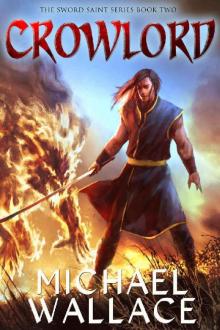 Crowlord (The Sword Saint Series Book 2)
Crowlord (The Sword Saint Series Book 2) Crowlord
Crowlord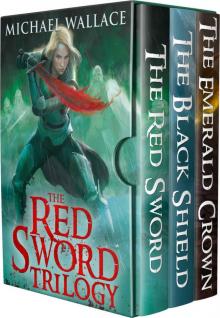 The Red Sword- The Complete Trilogy
The Red Sword- The Complete Trilogy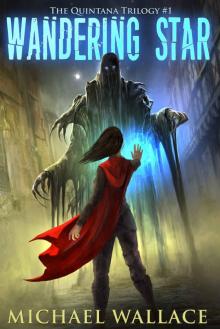 Wandering Star (The Quintana Trilogy Book 1)
Wandering Star (The Quintana Trilogy Book 1)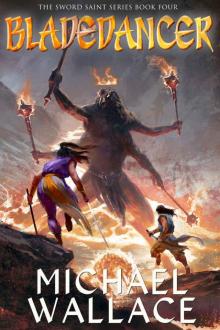 Bladedancer
Bladedancer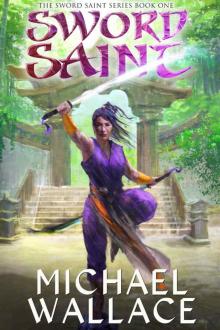 Sword Saint
Sword Saint The Alliance Trilogy
The Alliance Trilogy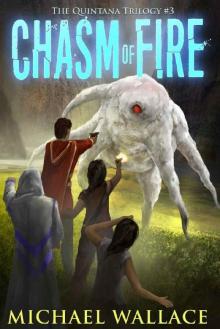 Chasm of Fire
Chasm of Fire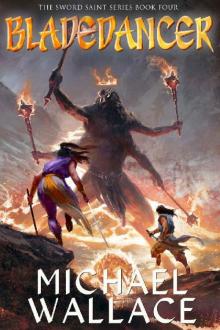 Bladedancer (The Sword Saint Series Book 4)
Bladedancer (The Sword Saint Series Book 4) The Devil's Deep
The Devil's Deep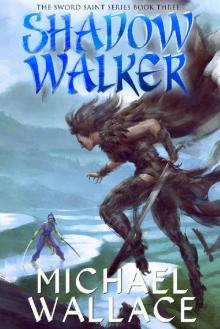 Shadow Walker (The Sword Saint Series Book 3)
Shadow Walker (The Sword Saint Series Book 3) Starship Blackbeard
Starship Blackbeard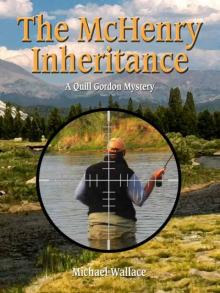 The McHenry Inheritance (Quill Gordon Mystery Book 1)
The McHenry Inheritance (Quill Gordon Mystery Book 1) Sun King (The Void Queen Trilogy Book 3)
Sun King (The Void Queen Trilogy Book 3)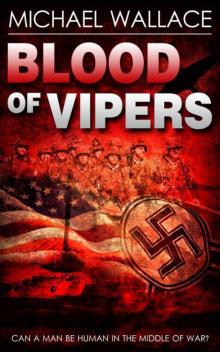 Blood of Vipers
Blood of Vipers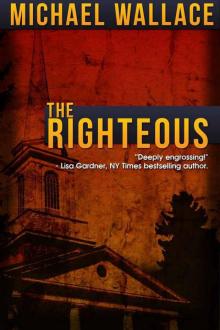 Righteous - 01 - The Righteous
Righteous - 01 - The Righteous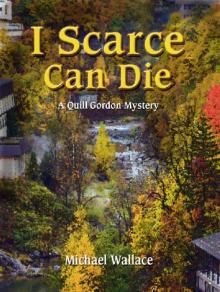 I Scarce Can Die (Quill Gordon Mystery Book 5)
I Scarce Can Die (Quill Gordon Mystery Book 5)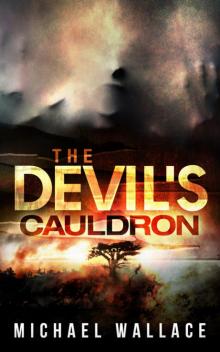 The Devil's Cauldron
The Devil's Cauldron The Wicked (The Righteous)
The Wicked (The Righteous) Crow Hollow
Crow Hollow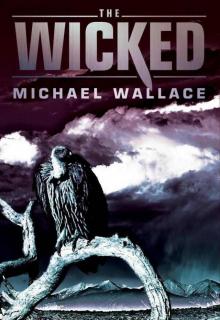 Righteous03 - The Wicked
Righteous03 - The Wicked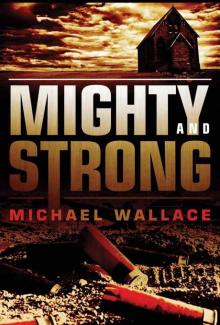 Righteous02 - Mighty and Strong
Righteous02 - Mighty and Strong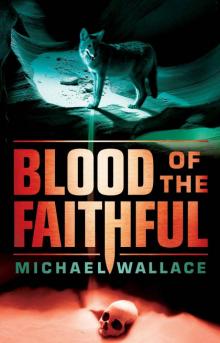 Blood of the Faithful
Blood of the Faithful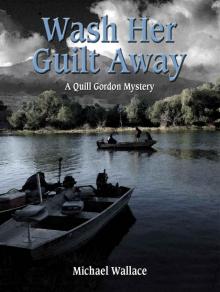 Wash Her Guilt Away (Quill Gordon Mystery Book 2)
Wash Her Guilt Away (Quill Gordon Mystery Book 2)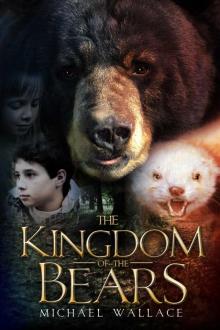 The Kingdom of the Bears
The Kingdom of the Bears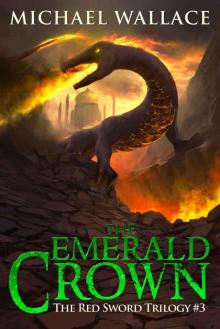 The Emerald Crown (The Red Sword Trilogy Book 3)
The Emerald Crown (The Red Sword Trilogy Book 3)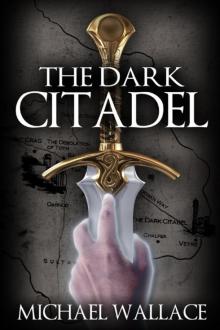 The Dark Citadel
The Dark Citadel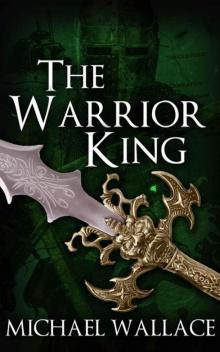 The Warrior King (Book 4)
The Warrior King (Book 4) Rebellion of Stars (Starship Blackbeard Book 4)
Rebellion of Stars (Starship Blackbeard Book 4)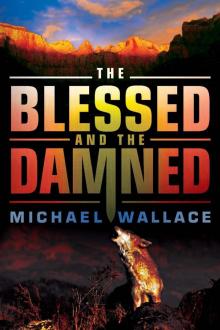 Righteous04 - The Blessed and the Damned
Righteous04 - The Blessed and the Damned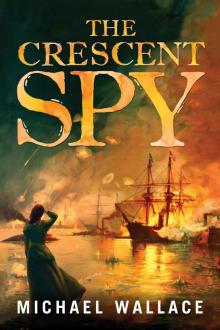 The Crescent Spy
The Crescent Spy Queen of the Void (The Void Queen Trilogy Book 1)
Queen of the Void (The Void Queen Trilogy Book 1)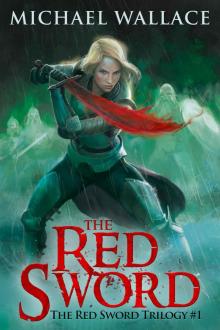 The Red Sword (The Red Sword Trilogy Book 1)
The Red Sword (The Red Sword Trilogy Book 1) The Sentinel (The Sentinel Trilogy Book 1)
The Sentinel (The Sentinel Trilogy Book 1)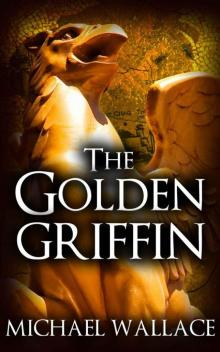 The Golden Griffin (Book 3)
The Golden Griffin (Book 3)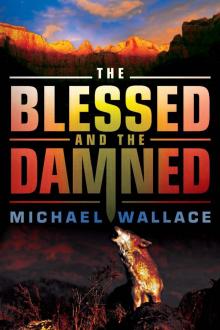 The Blessed and the Damned (Righteous Series #4)
The Blessed and the Damned (Righteous Series #4)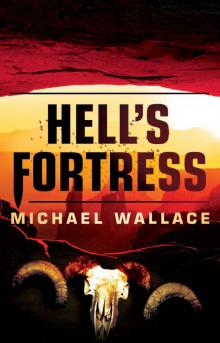 Hell's Fortress
Hell's Fortress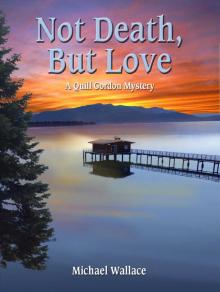 Not Death, But Love (Quill Gordon Mystery Book 3)
Not Death, But Love (Quill Gordon Mystery Book 3) Destroying Angel
Destroying Angel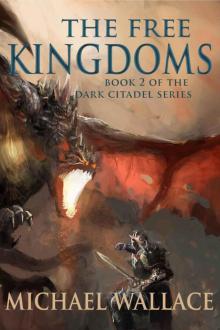 The Free Kingdoms (Book 2)
The Free Kingdoms (Book 2)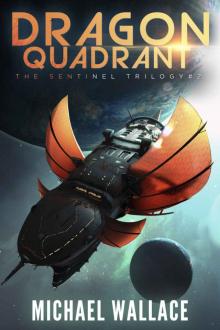 Dragon Quadrant (The Sentinel Trilogy Book 2)
Dragon Quadrant (The Sentinel Trilogy Book 2)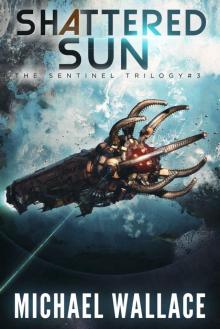 Shattered Sun (The Sentinel Trilogy Book 3)
Shattered Sun (The Sentinel Trilogy Book 3)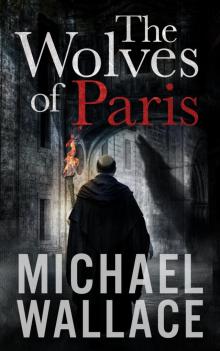 The Wolves of Paris
The Wolves of Paris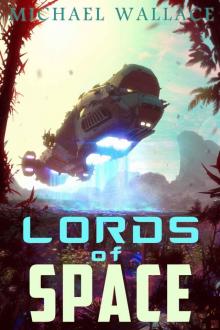 Lords of Space (Starship Blackbeard Book 2)
Lords of Space (Starship Blackbeard Book 2) Dreadnought (Starship Blackbeard Book 3)
Dreadnought (Starship Blackbeard Book 3)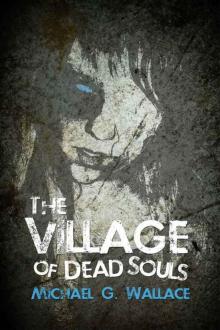 The Village of Dead Souls: A Zombie Novel
The Village of Dead Souls: A Zombie Novel The Black Shield (The Red Sword Book 2)
The Black Shield (The Red Sword Book 2)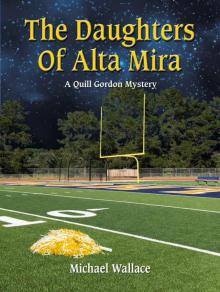 The Daughters Of Alta Mira (Quill Gordon Mystery Book 4)
The Daughters Of Alta Mira (Quill Gordon Mystery Book 4) Mighty and Strong (The Righteous)
Mighty and Strong (The Righteous)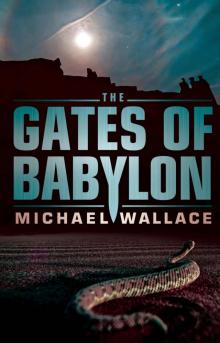 The Gates of Babylon
The Gates of Babylon